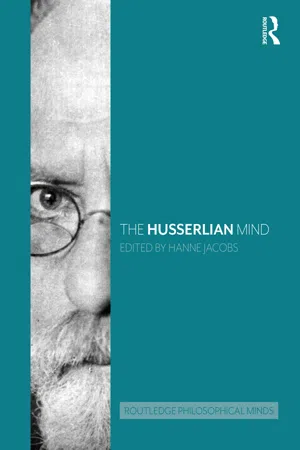Such misunderstanding and confusion about the meaning of phenomenological description and the clarification of the fundamental concepts of pure logic that Husserl expected it to achieve reveal a significant difficulty inherent to his initial undertaking. How can we understand the unity of the philosophical project that rigorously ties together the two volumes of the Logical Investigations?
Anti-psychologism and neo-Kantianism: Windelband and Natorp
Husserl was far from being the first to make arguments against psychologistic theories. Nevertheless, his Prolegomena to Pure Logic presents an in-depth and remarkably synthetic attempt to identify, analyze, and critically discuss the theses, presuppositions, and shortcomings that the label “psychologism” encapsulates. Husserl proposes a series of arguments that contributed a great deal to mapping the variety of positions that the new psychology gave rise to and their correlative (explicit or implicit) philosophical claims. Across the years that followed their publication, Prolegomena was widely read and referred to as the official anti-psychologist manifesto (Kusch 1995).
However, the historical significance of Prolegomena’s role within the psychologism dispute (Psychologismus Streit) contributed somewhat to concealing the subtlety of Husserl’s position in the debate. Husserl’s rejection of psychologism is certainly motivated by the harsh and pitiless critique of his Philosophy of Arithmetic that Frege published in an 1894 review (Frege 1972). Frege pointed out how Husserl’s analysis of the relation between numbers and the acts of collecting and colligating ultimately relies on an interpretation of logical laws that traces them to psychological processes, thereby revealing the psychologistic background of his approach (Mohanty 1977; Føllesdal 1994). This criticism deeply impacted Husserl, whose strong interest in the conception of pure logic, developed in Bolzano’s Wissenschaftslehre (Theory of Science) and championed by Lotze, was already in conflict with his initial Brentanian attempt to provide some psychological foundation to logical and arithmetical concepts. From this moment on, Husserl diagnoses psychologism as the main threat jeopardizing the clarification of concepts upon which a theory of knowledge must rest. Defining psychologism as the recurring attempt to ground the necessity of logical laws upon the contingency of the empirical laws of thinking, Husserl undertakes a detailed critique of the various forms of psychologism widespread in nineteenth-century accounts of logic (such as Mill, Spencer, Sigwart, Erdmann, and Lipps) and their philosophical consequences. This critique accordingly necessitates the preliminary step of establishing the theoretical foundations of pure logic understood as a new a priori and purely demonstrative science of science.
Husserl insists that his position in the debate needs to be understood as a particular kind of anti-psychologism, specifically designed to address logical issues and to clear the way for setting up the tasks of pure logic. In this regard, his critique must be carefully distinguished from the more general and all-encompassing version of anti-psychologism articulated by the neo-Kantians a few decades earlier. In a series of polemical texts aimed at reestablishing the role of critical philosophy against the rise of psychology, Windelband and Natorp, the main figures of the neo-Kantian schools of Heidelberg and Marburg, had engaged in an uncompromising rejection of psychologism, which came to constitute a foundational aspect of neo-Kantianism and played a decisive role in its development (Windelband 1880 and 1884; Natorp 1887 and 1888; see Anderson 2005). Husserl’s critical analysis, on the other hand, follows a much narrower aim that highlights the strictly logical significance of his own anti-psychologism: the only form of psychologism that phenomenology aims at overcoming is “the psychologizing of the irreal significational formations that are the theme of logic” (Husserl 1969, 152).
It is then crucial to see that Husserl’s purpose is not only to propose a criticism of the psychologistic presuppositions undermining most conceptions of knowledge, but also – and just as importantly – to demonstrate the shortcomings of the anti-psychologistic claims articulated by the neo-Kantians. His analysis, indeed, begins by putting aside the main arguments raised by the neo-Kantians, which stress the “normative character [of logic]” and its irreducibility to the empirical contingency of psychological laws (Husserl 2001b, 31; see also 41–44). Husserl insists that such normative objections can easily be dealt with and cleared out by the proponents of psychologism and points out the insufficiencies of the neo-Kantian version of anti-psychologism.
This refutation of normative anti-psychologism plays a significant role in the construction of Husserl’s argument. Instead of stressing the irreducible opposition between the normative procedures that theory of knowledge must account for according to neo-Kantianism and the description of the empirical facts through which knowledge is actually performed, Husserl critically examines the consequences of psychologism. The anti-psychologistic arguments he formulates allow some kind of complementarity between psychology and theory of knowledge, as Husserl refuses to hold them strictly contradictory to each other. Psychology somehow “takes part” or “participates” (mitbeteiligen) in the foundation of logic, even though it does not provide logic’s “essential foundation” (Husserl 2001b, 45).2 Consequently, Husserl’s anti-psychologism does not commit him to endorse the conclusions drawn by the neo-Kantians’ critique. While the neo-Kantian arguments were meant to clear the analysis of knowledge from empirical psychology and establish Kant’s critical method of transcendental deduction as the only possible way to provide the foundations of theory of knowledge, Husserl’s Prolegomena sets the grounds for an analysis of ideal meanings (Bedeutungen) or “significational formations.” The knowledge of logical truths can be achieved on the basis of this logical analysis; consequently, psychology does not need to be eradicated, and psychological descriptions can legitimately be considered useful to the theory of knowledge.
